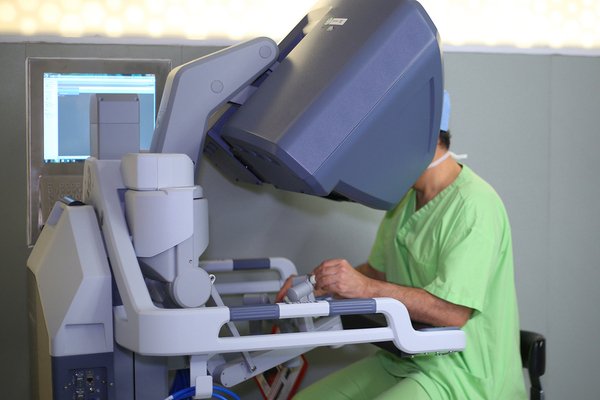We live in an age of technological innovation, and one of the biggest beneficiaries of new technologies has been the healthcare industry. New technologies make both patient services and back-office practices faster and more accurate.
Innovations for 2019 alone (as listed by the Cleveland Clinic) range from exciting to mind-boggling and include:
- Alternative pain therapies
- Artificial intelligence in decision support, medical image analysis, and patient triage
- 3D printing of patient-specific devices
- Virtual reality in medical education
- Robotic surgery advances
and much more. Healthcare innovation occurs in many dimensions of the healthcare process, and researchers, clinicians, and healthcare administrators are finding new ways to innovate. There is every reason for them to do so, too, since each dollar spent on successful innovations reduces spending many times over. Here are just a few examples of healthcare innovation management in action.
Innovations in Diagnostic Technologies
Breaking the status quo in healthcare is not easy, but data-driven decision-making can drive real innovations in diagnostics. Implementing innovative diagnostic technology must focus on not only the “what” of the technology, but the “how.” Can it integrate with a facility’s current technology? Is it scalable?
Healthcare innovation management in diagnostics requires several key steps:
- Creating a data governance framework that consistently and securely manages data across the organization (and possibly among outside organizations as well)
- Handling data that may exist or be generated in many different formats
- Making data available to authorized key personnel to encourage data-driven decision-making
Innovations in Drug Development and Delivery
Developing new drugs is phenomenally expensive, yet new drugs are at the heart of many advanced medical treatments. Innovations surrounding drug development and delivery encompass processes like outsourcing drug production, sharing clinical trial information to populate trials appropriately, and evaluating quality-of-life issues related to new drug therapies.

Innovation in drug development requires attention to manufacturing and supply chain issues as well.
Additionally, innovations in drug development may encompass supply chain management, as well as payment and reimbursement processes. Such innovations can also ensure that adequate supplies of drugs are available to patients.
Innovations in Personalized, Genetics-Based Care
“Genomic medicine” is an emerging medical protocol that involves using a patient’s specific genetic information in their clinical care. It’s already being used in cancer treatment and the treatment of rare diseases since genetic and genomic “markers” are becoming better understood all the time. The main result of genomic medicine innovation will be a shift away from “one-size-fits-all” treatment protocols and toward personalized, precise treatment plans. Implementing such technology at scale will require new methods of healthcare innovation management.
Types of Innovative Strategies Used in Healthcare
Typical healthcare innovation management strategies include:
- Scenario planning – where healthcare providers do long-range organizational planning in the context of known market forces, such as an aging population, or the emergence of large age-related disease populations
- “Blue ocean” planning – which involves innovating to identify previously unmet or unrecognized demands to create entirely new markets in healthcare. An example would be “concierge” healthcare as an alternative to traditional fee-for-service, insurance-based healthcare.
- Networked innovation planning – which is what goes into medical resource sharing and networking. Electronic health records (EHRs) are an example. They must be shared to facilitate better, faster treatment, all while coping with strict patient security and confidentiality concerns.
Innovation in healthcare is proceeding at an exciting pace, affecting patient care, practice management, and drug availability. The biggest challenge is in healthcare innovation management or making sure new technologies are put to their best use. It isn’t easy in an industry that is heavily regulated and constantly working to keep costs under control.
Most Recent Posts
Explore the latest innovation insights and trends with our recent blog posts.













